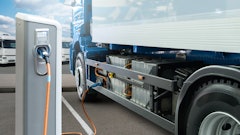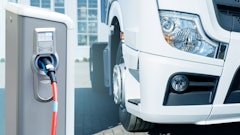
By now, everyone is aware that Volkswagen (VW) cheated on Environmental Protection Agency (EPA) emissions tests of its clean diesel vehicles. For a brand that based its reputation on environmental friendliness and fuel efficiency, this is a huge blow. Stock prices and car values took an immediate dive. Clearly, it is going to be a long uphill battle to reclaim its market leadership.
Impact on Volkswagen’s Brand
At a pivotal moment in its history, VW gets only one chance to rebuild its image with consumers. It has to do it right. This is going to take a data-driven approach and a laser-sharp focus on what really matters to customers.
Vennli, a software-as-a-service (SaaS) platform that synthesizes customer insights into growth strategies for businesses, polled more than 400 U.S. car buyers about what factors are most important to them when purchasing a car, and their perceptions of VW and competing brands.
Despite being a market leader across the world, only 4 percent of consumers currently in the market for a car said that they would consider purchasing any VW vehicle.
The research also revealed that 42 percent of car buyers are less likely to purchase any VW vehicle as a result of the emissions software scandal. The perceptions of VW were largely the same for car buyers looking to purchase diesel vs. conventional gas models, suggesting the negative press is going to impact more than just eco-friendly car sales.
When you compare those who heard about the VW scandal and those who did not, something interesting happens:
- Car buyers who did not hear the news associated the following terms with both VW and Toyota—low emissions, latest technology, good fuel economy, trustworthiness and environmental consciousness.
- However, when looking at people who did hear the news, car buyers no longer associated VW with low emissions, environmental consciousness and trustworthiness.
While the focus in the news was on the emissions tests and environmental impact, what’s interesting is that respondents reported these are actually not as important to their purchasing decision. Trust in the car manufacturer ranks much higher.
Fixing the problem by updating the software in the millions of effected vehicles is certainly a necessary step, but customer insights show that this is not enough by itself to improve consumer perceptions or increase sales.
To stop its quick public image decline, VW’s strategy should focus on rebuilding trust. As a brand issue, rather than a product-line issue, a strategic focus on increasing consumer perceptions of honesty and transparency should be the highest priority.
The company would also do well to focus its messaging around its remaining strengths in the eyes of consumers. VW’s strongest competitive position is with factors such as high safety ratings, reliability and the long life of the car.
It’s too early to understand the full scope that this scandal may have, but it’s clear that consumer perceptions were strongly impacted. Now it’s up to VW to listen and let the customers’ voice determine its next moves.
What Other Organizations Can Learn from Volkswagen’s Mistakes
Many experts weighed in on the damage to VW’s brand and future. A less common question (but perhaps even more broadly important) is how it found itself in this position and what other companies can learn from its plight to avoid similar controversy.
It’s easy to say, “That could never happen to us. We would never cheat!” But, in reality, many organizations face similar challenges to VW.
There’s no doubt that VW was feeling very real pressure to compete for the consumers’ choice, as the automotive industry is more cutthroat than ever. Manufacturers fight over half a percentage of market share that may make or break their earnings. Companies struggle to differentiate themselves in the eyes of potential car buyers. Every marketing campaign matters. Every online review and media pickup can impact stock prices.
As in every industry, car companies are struggling to keep up with the pace of changing customer needs and market forces. Manufacturers compete with very similar product lines, trying to differentiate their offering with savvy marketing and by being the first to market. Product development cycles often move slower than the pace of market change, so manufacturers must act quickly and decisively.
Unfortunately, large, successful organizations like VW are often held back by regimented, rigid business practices. As businesses grow, thinking becomes top-down and insulated. It becomes increasingly difficult for outside forces, such as the customer, to crack through the shell and influence decision-making.
VW is a huge international corporation, employing thousands of smart people across the world. It rose to the top of its market by providing unique value to its customers. In order to do this, it listened to customers and made decisions based on customer needs.
But over time, it lost focus, giving way to subpar organizational behaviors and habits. Companies like VW gain their initial growth by uniquely meeting a certain customer need. Over time, however, they drift away from this connection with their customer and, instead, make decisions by responding to operational requirements, incumbent philosophies and existing capabilities. They stop listening to customers and focus on beating their competition.
If VW was really in tune with how its customers made purchase decisions, it might have realized that trust in the manufacturer has more impact on consumer choice than low emissions, and it never would have risked consumer trust by cheating on emissions tests.
Cheating was a sign of desperation—a symptom that it lost sight of its customer and how to grow the brand in new ways that customers would find valuable.
Clearly, most organizations don’t take it as far as VW, but in the wake of such a story, it can be easy for business leaders to wonder if something like this could happen within their own organizations. We may never know exactly what happened at VW, but it is possible to take measures to prevent it happening at other organizations by strengthening the focus on the customer.
Organizations must align around customer needs and a deep understanding of how customers make choices within their competitive market—and revisit the result on an ongoing basis. This sounds perhaps simple and obvious, but it’s common to struggle with it in practice.
As Vennli co-founder Dr. Joe Urbany says, growing your business boils down to a simple nine-word imperative: Be different from competitors in ways important to customers. Put frankly, if customers aren’t choosing you, you can’t thrive and grow. Therefore, nothing is more important than understanding why and how your customers make decisions in the context of your competitive market.
Customer perceptions are always evolving, so assuming to know the customer’s mind is a dangerous game. Organizations must have processes in place to listen to customers and react quickly to what is learned. Successful organizations are agile organizations—constantly innovating and capitalizing on new opportunities, and evolving with the customer.
Growth happens when the customer’s voice drives decision-making. The flip side of that truth is that you open yourself up to a great amount of risk when the customer’s voice is quiet during strategy development. Like VW, when decisions are made for the wrong reasons, there can be serious, detrimental effects. To safeguard your own organization, consider how you can fortify how you integrate the customer into your strategic decision-making.

























